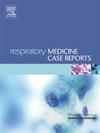A stepwise approach for the management of bilateral chylothoraxes from cisterna chyli trauma
IF 0.7
Q4 RESPIRATORY SYSTEM
引用次数: 0
Abstract
Chylothorax is a rare complication characterized by chyle accumulation in the pleural space, leading to respiratory and nutritional deficits. We present a 53-year-old male who developed bilateral high-output chylothorax following radical nephrectomy and lymph node dissection for renal cell carcinoma. Despite conservative management with a fat-free diet, total parenteral nutrition, and octreotide, chyle output remained >1L/day. Lymphangiography identified thoracic duct leakage, but embolization and cisterna chyli fenestration were unsuccessful. The patient ultimately underwent video-assisted thoracoscopic surgery (VATS) with talc pleurodesis, resulting in resolution. This case highlights the importance of a multidisciplinary, stepwise approach in managing refractory chylothorax, with VATS and talc pleurodesis as effective interventions when conservative therapies fail.
双侧乳糜胸由乳糜池外伤分步治疗
乳糜胸是一种罕见的并发症,其特征是乳糜积聚在胸膜间隙,导致呼吸和营养缺陷。我们报告一位53岁男性,因肾癌而行根治性肾切除术及淋巴结清扫后,出现双侧高输出乳糜胸。尽管给予无脂饮食、全肠外营养和奥曲肽等保守治疗,乳糜排出量仍维持在1L/天。淋巴管造影发现胸导管渗漏,但栓塞和乳池开窗均未成功。患者最终接受了视频胸腔镜手术(VATS),并伴有滑石质胸膜切除术。本病例强调了多学科、分步治疗难治性乳糜胸的重要性,当保守治疗失败时,VATS和滑石粉胸膜切除术是有效的干预措施。
本文章由计算机程序翻译,如有差异,请以英文原文为准。
求助全文
约1分钟内获得全文
求助全文
来源期刊

Respiratory Medicine Case Reports
RESPIRATORY SYSTEM-
CiteScore
2.10
自引率
0.00%
发文量
213
审稿时长
87 days
 求助内容:
求助内容: 应助结果提醒方式:
应助结果提醒方式:


